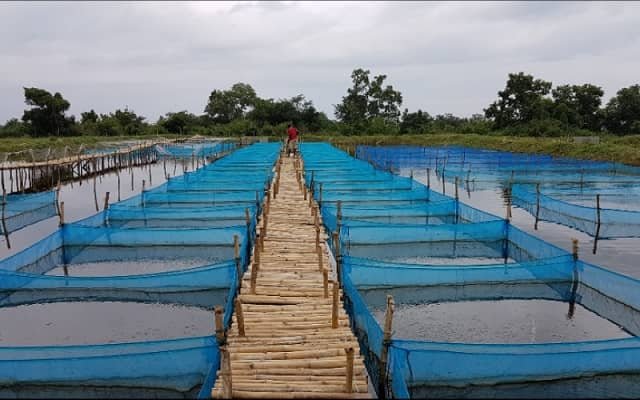By Holger Rubel, Wendy Woods, David Perez, Shalini Unnikrishnan, Alexander Meyer zum Felde, Sophie Zielcke, Charlotte Lidy, and Carolin Lanfer
Farmed shrimp is among the fastest-growing food products in the world. Global production, which has more than tripled since 2000, is poised to grow 6% annually.
But producers must respond appropriately to the strong market forces that are reshaping the shrimp industry:
– Low-price competitors are flooding the market with cheap shrimp.
– The rapid growth of shrimp farming is putting natural resources at risk, and global retailers, importers, and consumers are demanding more sustainable production methods and traceable seafood.
– New regulations, such as those of the Seafood Import Monitoring Program in the US, are requiring importers to track shrimp from the point of harvest to the point of entry.
– Digital technologies are disrupting the market and driving the shift toward traceability, closed-loop systems, and indoor farming.
To better understand how these forces are affecting shrimp producers, BCG has analyzed four major shrimp-producing countries: Thailand, Vietnam, Indonesia, and India. Our analysis identified the current and near-term challenges facing the farmed-shrimp industry, and our resulting reports offer recommendations that shrimp producers and traders can follow to succeed financially, boost productivity and efficiency, and become leaders in sustainability.
More information to: https://www.bcg.com/publications/2019/shrimp-farmers-worldwide-must-adopt-sustainable-practices.aspx
Stay Always Informed
Join our communities to instantly receive the most important news, reports, and analysis from the aquaculture industry.
Editor at the digital magazine AquaHoy. He holds a degree in Aquaculture Biology from the National University of Santa (UNS) and a Master’s degree in Science and Innovation Management from the Polytechnic University of Valencia, with postgraduate diplomas in Business Innovation and Innovation Management. He possesses extensive experience in the aquaculture and fisheries sector, having led the Fisheries Innovation Unit of the National Program for Innovation in Fisheries and Aquaculture (PNIPA). He has served as a senior consultant in technology watch, an innovation project formulator and advisor, and a lecturer at UNS. He is a member of the Peruvian College of Biologists and was recognized by the World Aquaculture Society (WAS) in 2016 for his contribution to aquaculture.







